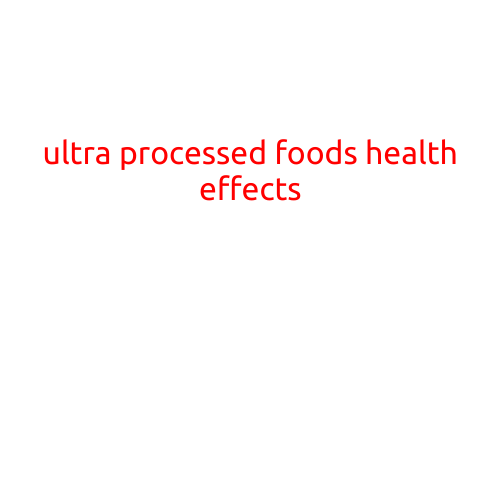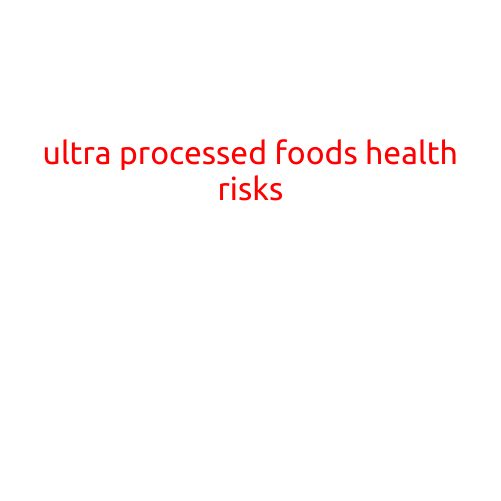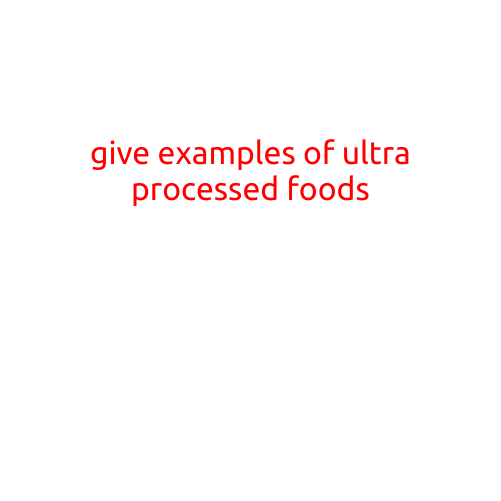
Ultra Processed Foods: A Growing Concern, According to Harvard
The modern food landscape is often characterized by convenience, speed, and affordability. However, the rise of ultra-processed foods has raised concerns about their impact on our health and well-being. According to a recent study from Harvard T.H. Chan School of Public Health, ultra-processed foods are not only a significant portion of our diet but also linked to a range of negative health outcomes.
What are Ultra-Processed Foods?
Ultra-processed foods, also known as “processed foods” or “industrial foods,” are products that have undergone significant transformation from their natural state. These foods typically consist of a mix of ingredients, including carbohydrates, fats, sugar, and salt, as well as additives and preservatives. Examples of ultra-processed foods include:
- Frozen meals
- Baked goods
- Sugary snacks
- Fruit juices
- Sweetened yogurt
- Breakfast cereals
- Canned goods
The Concern: Health Risks
The Harvard study, published in the journal BMJ, analyzed data from over 48,000 participants in the American Cancer Society’s Cancer Prevention Study II Nutrition Cohort. The findings revealed that:
- Higher consumption of ultra-processed foods was associated with a greater risk of death from cardiovascular disease, cancer, and other causes.
- The more ultra-processed foods participants ate, the higher their risk of dying from all causes.
- In contrast, a diet rich in whole foods, such as fruits, vegetables, whole grains, and lean proteins, was linked to a lower risk of death and chronic diseases.
The Science Behind the Risks
Ultra-processed foods are often designed to be highly palatable, addictive, and inexpensive. However, this convenience comes at a cost. Many ultra-processed foods contain:
- High amounts of added sugars, which can lead to weight gain, insulin resistance, and chronic diseases.
- Refined carbohydrates, which can cause Insulin resistance and blood sugar spikes.
- High levels of sodium, which can increase blood pressure and heart disease risk.
- Unhealthy fats, such as partially hydrogenated oils, which can raise cholesterol and heart disease risk.
- Artificial additives, including coloring agents, flavor enhancers, and preservatives, which can disrupt gut health and immune function.
Take Control of Your Diet
In light of these findings, it’s essential to re-evaluate your eating habits and prioritize whole, minimally processed foods. Here are some simple tips to get you started:
- Shop the perimeter of the grocery store, where whole foods are typically located.
- Avoid products with long ingredient lists or unfamiliar terms.
- Cook at home using fresh ingredients whenever possible.
- Limit your consumption of packaged and processed foods.
By making informed choices about what you eat, you can reduce your exposure to ultra-processed foods and promote better health for yourself and your loved ones.
Sources
- Imamura F, et al. (2020). Dietary patterns and risk of mortality from cardiovascular disease, cancer, and all causes in a prospective cohort study. BMJ, 371, m3923.
- Harvard T.H. Chan School of Public Health. (2020). Ultra-processed foods linked to increased risk of death. News Release.





